When we read the Bible, the Third and Fourth Books of Kings about the amazing acts of the holy Prophet Elias, our mind is astounded by them; we are amazed at many things: his extraordinary zeal for the glory of God and his total fearlessness in the work of cultivating faith amidst a pagan people (and such were the people of Israel at that time); our mind is amazed when we read of his extraordinary miracles; and we are most of all amazed when we read about the incredible power of his prayer, for you know that he commanded the elements with it—he forbade the rain to fall upon the Palestinian land for three and a half years, and then again by his prayer brought rain down to the earth.
He brought down fire from heaven, and it burned the sacrifice that had been drenched with water.
It is to Prophet Elias’s prayer that I would like to direct your attention, for there is not sufficient time to speak of all the great things he did. However, I would like to talk not only about his prayer. We know that there were great ascetics of piety, great saints who also worked wondrous and magnificent miracles.
But I want the thought to reach your heart that not only does this kind of prayer, which works manifest miracles seen by everyone, not only the prayer of the Prophet Ellias, and the prayers of the apostles, prophets, and martyrs work miracles. I want you to understand that any prayer will work miracles.
What miracles does it work? Not those glorious and amazing miracles that the Prophet Elias wrought, no. It works miracles unknown to anyone other than the one in whose soul these miracles happen.
The kind of prayer that was made by St. Seraphim of Sarov, St. Sergius of Radonezh, Sts. Anthony and Theodosius of the Kiev-Caves, St. Varlaam of Khutyn, St. Nilus of Sora, and many other monastic saints works unseen miracles.
St. Seraphim and St. Sergius were like angels in the flesh even while still alive; their souls were filled with deep faith, pure love for God and people. They shone with faith and love.
How did they attain such brightness?
They attained it by their prayer—first of all by prayer. True, also by severe fasting and vigil.
Do you know that St. Seraphim of Sarov stood for a thousand days and nights on a rock, praying to God? This amazing prayer made him an angel in the flesh. From this prayer divine love came to dwell in his soul, and his heart shone with such love that he greeted every person who passed by him with these words filled with love: my joy!
Do you see? Prayer worked a miracle in St. Seraphim’s soul; it worked miracles in the souls of all the other monastic saints, of which there is an enormous number. Prayer worked miracles of patience in the martyrs, and this unfathomable patience astounded the souls also of those who witnessed their torments. Often even the executioners who tortured them turned to Christ.
Thus, do you see that prayer that does not work obvious, astounding miracles works miracles in the hidden depths of human hearts.
It completely transforms these hearts, for the hearts of the monastic saints and martyrs are quite unlike the hearts of ordinary people—that mass of humanity whom Holy Scripture calls people of the earth, and I will dare to call “people of grass”, and it enflames the hearts of such people also.
Thus, know that in your prayer is the power of God, working miracles in your hearts. Know, that prayer is the most important of all the Christian’s works. All his other works are small and insignificant, absolutely insignificant in comparison with the act and labor of prayer.
Just as every plant without water in dry soil withers, so also does the human soul wither if it is not fed with prayer. It also needs food and water, but a special water—that living water that Christ promised to the Samaritan woman when He talked with her; that water flowing in eternal life, about which he spoke in the temple in Jerusalem on the day of Mid-Pentecost.
This water is the water of God’s grace, which is absolutely needful for every one of us. And we receive this living water, this spring of grace, through prayer.
But when I speak of prayer, I often get the reply, “I don’t know how to pray. Teach me how to pray.”
How do I answer?
First of all I answer that prayer is the greatest and hardest of all human works. We know that there is no difficult work that can be learned easily. Long study is needed for all such work, or for any art.
If long study is needed for human works, then is it even more needed for this greatest of all works. Study, study, and study endlessly—and you will obtain it.
But how should you begin this study? Here is how: there are many prayers that have been compiled and written by great God-pleasers, by great holy hierarchs, monastic saints, and martyrs.
Pray these prayers; do not imitate the Baptists who disdain these prayers and compose their own. Their prayers are weak and trite, for their spirit is worthless in comparison with the spirit of the holy fathers.
Do not think up your own prayers; pray using those prayers the Holy Church has taught you. However, when reading these prayers, delve into every word, catch yourself in every moment of straying, in every distraction from the words of prayer.
If you will pray like this, the holy prayers of the great God-pleasers will illumine your souls.
But there is yet another prayer—the Jesus prayer, which is the most important and necessary prayer for all monastics.
“Lord Jesus Christ, Son of God, have mercy on me, a sinner.”
This prayer truly works miracles, and is therefore considered extremely important, if not the most important of all.
Learn this prayer, and begin with it. Learn it like this: close the door of your room. If you want you can stand, or if you want you can sit on a chair, or kneel.
Lowering your head, look first of all to your heart, thinking and remembering which sin of the great multitude of your sins most torments your heart, which of them is the most hateful to God.
If it is fornication, or adultery, think about that sin; if it is greed, think about that before all; if it is mercilessness and cruelty or lack of love, concentrate your thought upon that first of all.
Standing, sitting, or on your knees, find the most serious of your sins, lower your head and beg the Lord Jesus first of all for forgiveness of this most important sin of yours… It is best to pray the Jesus prayer using your prayer rope, saying: Lord Jesus Christ, Son of God, have mercy on me, a sinner.”
During this time think about this most serious sin. Repeat this prayer no less than one hundred times, always concentrating your thought on the most serious and abominable of your sins. Beginning with this, make it a habit to remember all your other sins as well.
Praying the Jesus prayer, you will hold all the sins in your mind and ask the Lord for forgiveness not only of the most serious sin, but also for all your sins. This prayer will work a miracle in your soul. You will become ashamed; when you start confessing your onerous sin before God, you will feel the insistent desire to be free of it, to be loosed from this loathsome sin without fail.
Praying like this from day to day, you will more and more be freed from your main sin and from all your other sins, and your soul will be transformed.
You yourself will begin to notice how your relationship to your neighbors will change: you will notice that you are becoming more gentle, patient, meek, and humble.
You will treat people with great carefulness, you will take caution never to hurt or offend anyone. And the Jesus prayer will transform your heart and work this miracle—an unseen miracle of God’s grace in your heart.
This is what I wanted to tell you about prayer.
And if you want to cleanse your heart, if you want to stand without trembling before the Terrible Judgment of Christ, do as I advise you.
Pray, pray the Jesus prayer, and first of all repent and repent.
Repentant prayer should be your most important and constant prayer. However, according to the measure that it purifies your heart, you will learn to pray not only for yourself, but also for your neighbors both close and distant, and then for all mankind. Then the holiest, most God-pleasing prayer will come—prayer for those who hate and offend us.
Earlier I counseled you not to imitate the sectarians by making up your own prayers, and now I am telling you that there is a higher form of prayer—prayer without words, the cry of the soul to God, which opens the heavens and leads us to the most living communion with God.
May the Lord vouchsafe us all to attain such prayer!
But this will only come when we become true temples of the Holy Spirit. Amen.

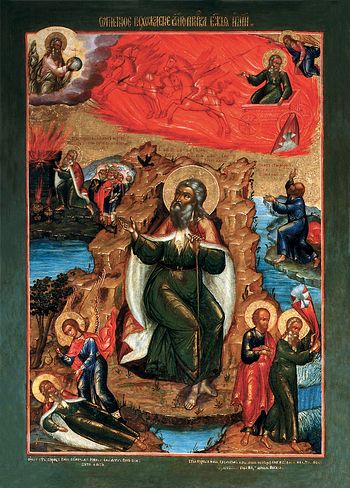

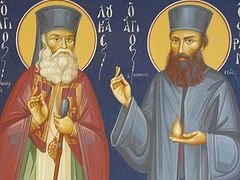
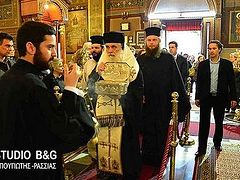
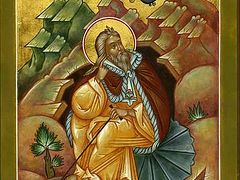
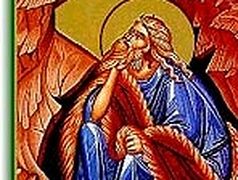
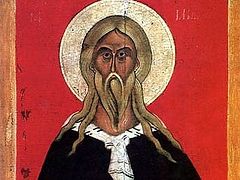
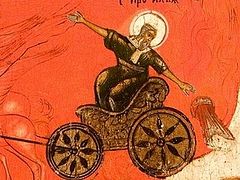
May the holy Bishop Luke intercede for us that we may be saved!